
Scottsdale Unified School District librarian had document promoting hormone replacement therapy in official school communications
Incidents
- Issues
- Sex and Gender
On June 19, 2022, the Arizona Daily Independent reported that a concerned parent filed a public records request to the Scottsdale Unified School District. The school district responded and sent documents to the parent to fulfill the request. However, in these documents, the parent also received a “patient registration form for Identity Hormones, a Phoenix-based firm that claims to ‘understand the fluidity of gender and hormones.'” The news outlet reported that the parent’s request was for official communications of “the librarian and Genders Sexuality Club teacher at Desert Mountain High School.”
The document asks respondents how they identify with several options including “man,” “woman,” “transgender,” “nonbinary,” “FTM,” “MTF,” “genderqueer,” “intersex,” and “other.” The document also asks respondents: “At what age did you first feel your gender identity did not match your physical body?” The document additionally states:
Transgender History/Intake: This form should be done in addition to the regular intake form. It tells us more about you as a transgender person and how we can help you. Identity Hormones uses a Harm Reduction method to help transpeople. We want to keep you safe and healthy. We know that not everyone needs to or can follow the WPATH (formerly HBIGDA) Standards. We will NEVER penalize or deny you care based on what you tell us on this form.
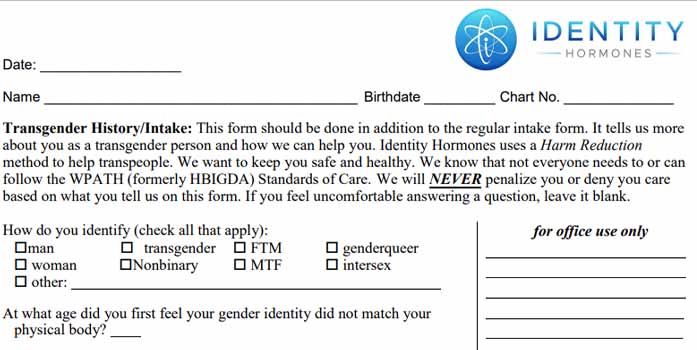
The Arizona Daily Independent reported that the school district’s general counsel “told the parent that the gender transition patient intake form was included in error and no further documents would be provided.” She further explained that “the document was an attachment sent by a student’s parent” to the librarian and that “the district was unwilling to provide a redacted copy of the alleged email” with the document.
The news outlet reported that the document contradicted what the district’s general counsel explained. The Arizona Daily Independent stated that “the gender transition patient intake form contained no place for a parent or guardian’s signature, only the patient and a ‘witness’ signature are required, further calling into question why an SUSD employee, who promotes gender identity causes through her GSA club, would have a need for this type of document.”
The news outlet then provided more pages of the form. Questions on the form ask respondents about their sexual relationships, including if respondents have been with “sexual partner(s)” who have been “transgender FTM,” “transgender MTF,” and “genderqueer.” The form also asks the following questions:
- Have you legally changed your name?
- Have you changed your gender on your IDs?
- Have you ever seen a health care provider about being transgender?
The document also includes a section titled “Testosterone Therapy for Female-to-Male (AFAB) Gender Transition.” This part of the document states: “This informed consent form refers to the use of hormone therapy by persons who wish to alleviate gender dysphoria through the masculinization of their body with testosterone.” The form also asks respondents if they “understand the risks, benefits, and alternatives of taking masculinizing hormones.”
The document asks respondents if they “understand that the long term effects of testosterone are not well-studied or fully understood” and that “there may be important health risks or benefits not listed in this consent form, which we have yet to identify.” The document additionally has respondents agree that they know the “potentially damaging or dangerous medical side effects of testosterone.” These include:
- Possible increases risk of developing gynecological problems including cancer. My provider may recommend periodic screenings through pelvic exams.
- Decreases in good cholesterol (HDL) and increases bad cholesterol (LDL). This may increase my risk of heart attack and/or stroke in the future. My provider will check my cholesterol level prior to starting and monitor me during hormone therapy through periodic blood tests.
- Increases in blood pressure. My provider will check my blood pressure prior to starting and will monitor me during hormone therapy through periodic physical exams. If I have high blood pressure repeatedly, my provider may recommend diet, lifestyle changes or medication to get my blood pressure well-controlled.
- Increases in the risk of developing or worsening certain diseases (i.e., type 2 diabetes, sleep apnea, and epilepsy).

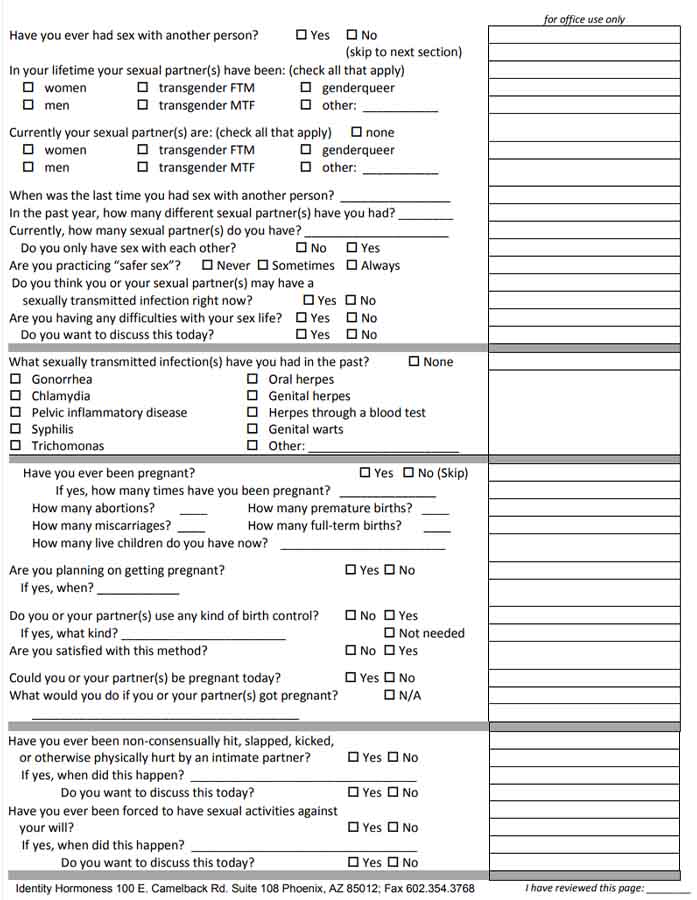

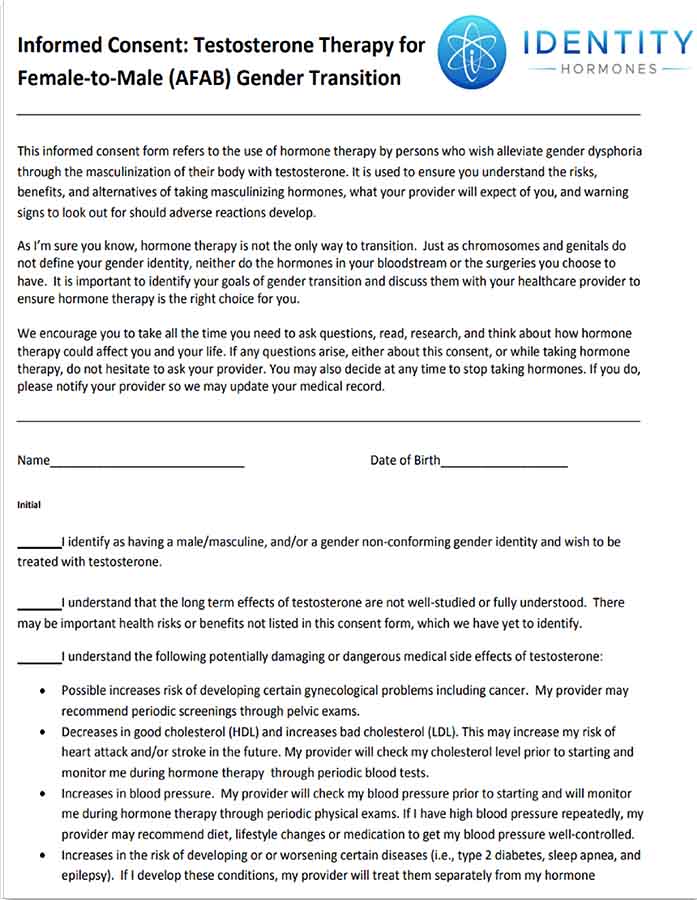
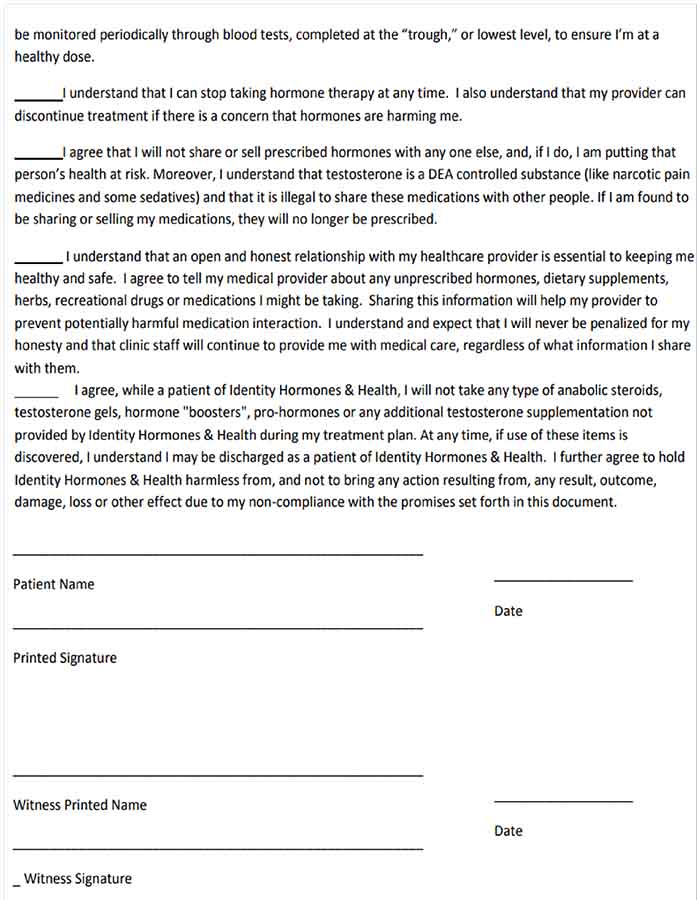
The website for “Identity Hormones” explains that the company is a “specialty clinic offering exceptional medical care for the LGBTQI+ community and its allies throughout the Phoenix area.” The company states that it specializes in “hormone replacement therapies” and offers “gender affirming hormone therapy (GAHT) for transgender men and transgender women.”
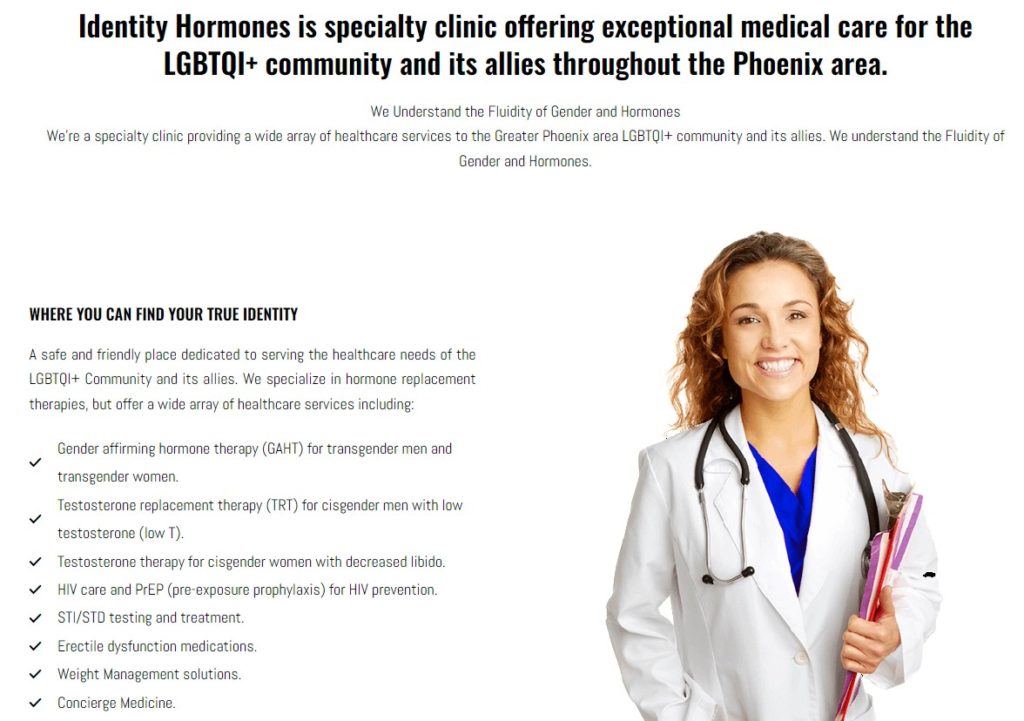
Stay Informed
